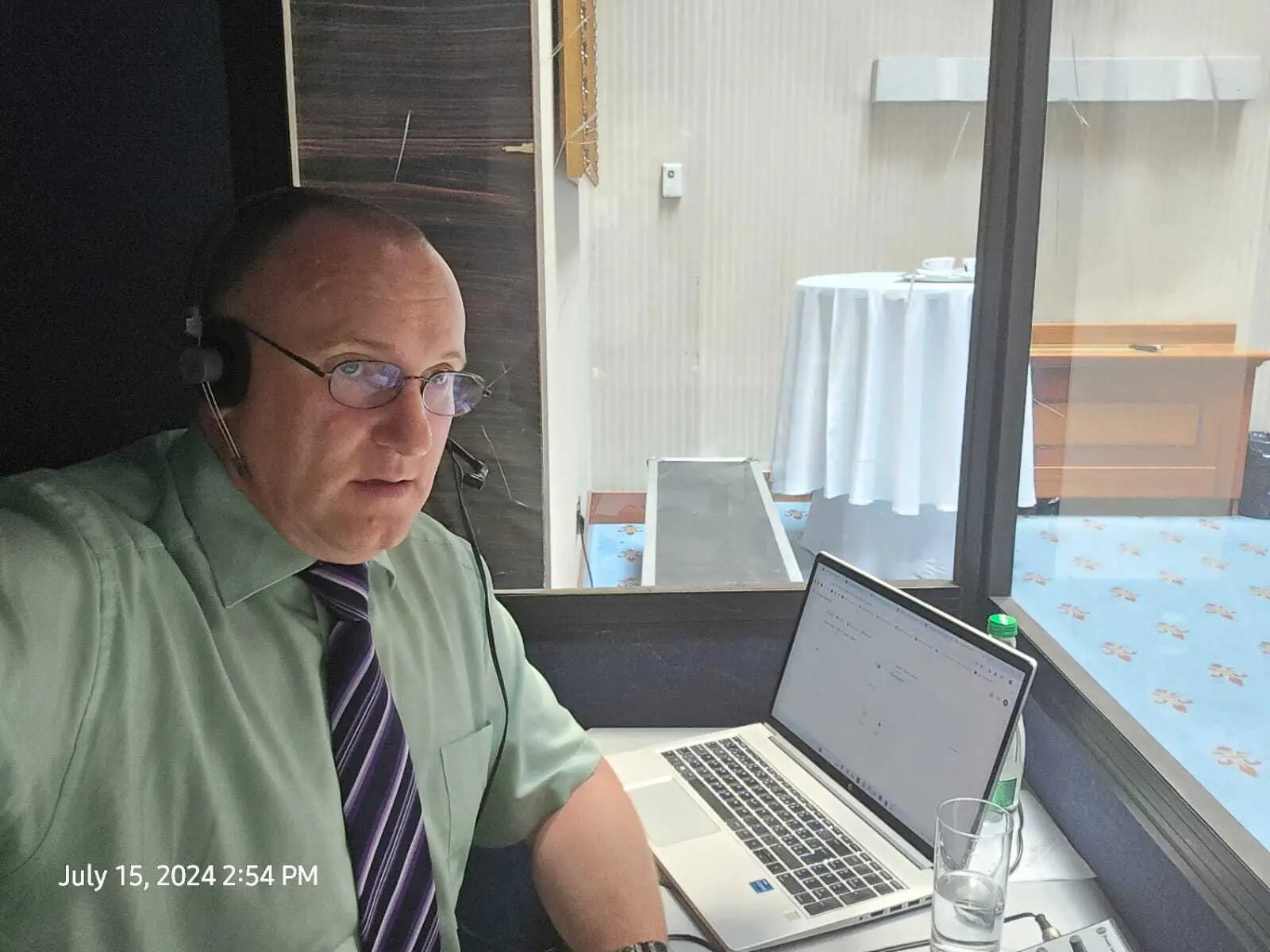Our work at Boostlingo wouldn’t be possible without the interpreters who make up our Boostlingo Hub. Each month we’ll be featuring a Boostlingo interpreter who loves what they do and inspires the Boostlingo team.
This month, meet Alfie Mendez.
Alfie has been interpreting since 2015 from Morelia, Michoacan in Mexico (a UNESCO World Heritage Site). He is a Spanish and English speaker who worked his way into the medical interpreting field. In his previous career, Alfie was an English teacher for all grade levels and even in universities.
Now a full-time remote interpreter, Alfie made the switch to spend more time with his then six-year-old son and to take advantage of the flexibility of working from home. To get to know him a little more, we sat down over Zoom for an interview.
What are the challenges and the rewards of being a Boostlingo medical interpreter for you?
I definitely did feel the difference between the other calls that were not medical and those that are medical. I used to like the social services [calls] because you feel like you’re helping people in that moment. As an English teacher you do get that feeling that you’re doing something positive and important, but it’s for the future – you don’t see the effects right away.
With interpretation in general, you’re helping – you’re bridging the communication. You’re helping people in that moment, instantly, for both parties. With social services it’s really heartwarming, you see the outcome. You’re helping people in need.
With medical it’s the same thing, but it requires a lot more knowledge and it’s a lot more technical. At first, I wasn’t so sure I would be able to speak with a neurosurgeon and cardiologist. I just wasn’t sure if I’d be able to have those conversations. Fortunately, I’ve been interpreting for several years now and what I’ve come to discover is that doctors and nurses, they know how to speak to patients, so that’s not something I have to worry about.
Being sensitive is very important. Depending on the context, there’s all kinds of diseases and diagnoses. I guess that’s the challenge. All of these people that are sick. I guess sometimes after a while it can get to you. We’re human and it’s inevitable that sometimes we feel that suffering that those patients are going through because we’re not machines, we’re not robots. So, after a while I need to decompress or go to a different mental state so I can come back fresh. It can take a toll emotionally. That’s the challenge, knowing how to stay in your role and be professional while not letting it get to you.
After a while the technical part of the job, you learn it and you just do it. Every specific case, every nurse and doctor you speak to is dealing with a different issue. We’re human, and it’s inevitable for us to feel, so sometimes we need to take breaks.
Then, every once in a while, there’s a medication that just came out a month ago that you don’t know yet. That’s more of the practical challenge.
How did becoming an interpreter change the way you see the world?
I feel connected – I literally am connected to people all over the world. When I tell people what I do for a living I tell them that I talk to people all over the globe in different languages every day. It’s not just something that I do locally or on my blog, it’s something that’s worldwide that allows me to continue speaking in English – which is something that I wouldn’t do much if it weren’t for this.
I grew up in the United States and I grew up speaking English. I miss a lot of things, and I feel like I’m multicultural in that sense. There’s not a lot of diversity in Mexico the way there was in the United States. I had friends from all sorts of ethnicities and backgrounds and it’s something I hold very dear to my heart. I have very nice memories. Being able to speak English – there was a time when I knew more English than Spanish, one time I asked my mom how you say tortillas in Spanish – is great.
I’ve never lost that interest in knowing and understanding other cultures. I’m sure that my son shares the comfort I feel with all people and cultures.
What does your son think about you being a Boostlingo interpreter?
He finds it very interesting. I think he’s proud of it. When people ask him, “Hey what does your dad do for a living?” I can tell in the way he answers and how he tells them. Who knows maybe he’ll join us in a few years. That’s definitely another plus to being an interpreter, you’re doing some good in the world.
What’s your advice for other Boostlingo interpreters?
Constant work is definitely helpful. If you’re always active you don’t lose practice, and if something new comes up that you don’t know then you can learn it right then and acquire that for the future.
There are resources your LSC may offer, and you should take advantage of them even if you don’t think you need them right then. There are a lot of obstacles for interpreters outside of the United States. I remember a time when it was quite difficult because of not being located in the US [where many courses and certifications take place] and because of the cost. The exchange rate is so high that these $500 or $1000 courses are a fortune. That’s why I say take whatever support you can get, whether from Boostlingo or from other Language Service Providers, just take it. You may think you already know these things, but you don’t know what you’ll need.
It’s very important to remember that this whole thing is not just about hearing words and repeating them in another language. You have to keep yourself involved in heart and mind, you need to *be* an interpreter, not just someone who has the skillset but someone who identifies with the job. Part of being an interpreter is keeping up with the latest training and developments. So, you take advantage of the training when it comes your way, especially if it comes to you at a discounted rate or even free.


